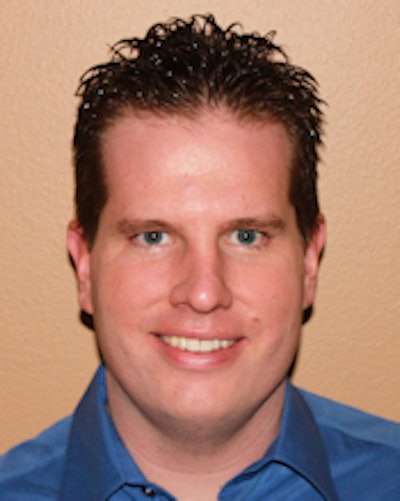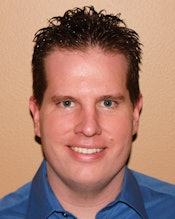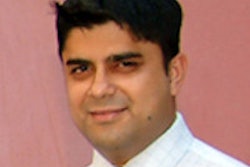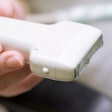
The American Board of Radiology (ABR) and the Association of Program Directors in Radiology (APDR) got it wrong when they revamped the accreditation process and dumped the oral boards in favor of a third-year core exam, according to an opinion piece in the Journal of the American College of Radiology.
Beginning this year, the intense year-three preparation for the oral boards has been replaced with a system that allows no time off for studying -- to the detriment of trainees and, ultimately, of radiology itself, said fourth-year radiology resident Dr. Karl Schultz from the University of Arkansas for Medical Sciences.
However, Schultz wrote his piece before the first trainees passed their core exams under the new regime, and with the benefit of hindsight, a program director commenting for this story was able to report that the first round of core exams went well for her trainees.
Just learning by doing won't fly
ABR has put in place a two-part board exam beginning in 2014, consisting of computerized tests with an integrated physics component. The qualifying exam is taken late in residency, and the certifying exam is taken 15 months after graduation.
"When I was a senior resident getting ready for the test, I studied for about eight months," Schultz told AuntMinnie.com in an interview. "I talked to other people, and most said they really put everything together during the last six months or so of study."
 Dr. Karl Schultz from the University of Arkansas.
Dr. Karl Schultz from the University of Arkansas.Now, everything has changed, and the consensus seems to be that several months of hard board preparation have been replaced with a haphazard, self-taught review that takes place during the time when residents aren't on duty, he wrote in the article.
"This new plan is a weak substitute for several months of concentrated serious study to prepare for a career in a field as broad as radiology," Schultz wrote (JACR, February 27, 2014).
For its part, APDR has made several statements assuring that neither time off nor special preparation is needed to pass the boards, and that "preparing continuously" is all that is needed to pass the new exam. This is simply untrue, even though the philosophy has been enthusiastically adopted by many training programs, Schultz wrote.
"I'm not saying it's a horrible system, I'm just saying it's not as good a system," he told AuntMinnie.com. "I think it would be better to have a more comprehensive, cooperative system."
Shultz is also unhappy about the idea of residents waiting 15 months after their residencies to take their final certifying exams -- calling it the "epitome of foolishness" in his article. For example, some of the residents in his class will be going straight into practice, "and it's uncertain whether or not they can read mammo when they get out because they're not board-certified, they're only board-eligible," he said.
Fellows are in the same boat: The new timeline means that residents will be "graduating from their fellowships and still not be board-certified," he said.
ABR and APDR are counting on new radiologists to consolidate their knowledge during preparation for the qualifying exam and in later lifelong learning, Schultz wrote. And although it's true that good radiologists add to their knowledge over the course of their careers, the knowledge base is established during formal training, which is truncated under the new regime.
"In reality, new graduates will enter the workforce as junior private-practice physicians or faculty members and have even less time to prepare for the examination," he wrote. "We will again resort to being entirely self-taught in small snippets of time during nights and weekends. Again, this will hardly produce well-trained radiologists."
The way they were
Traditionally, senior residents traded clinical work during the last few months of residency for intense exam preparation, spending their time poring over books, watching video lectures, and studying cases to fill in their knowledge gaps, Schultz said. This time was helpful for passing the oral boards, but it was even more helpful for the new radiologists themselves, who routinely said at least half of their knowledge of radiology was acquired during this time.
"Sadly, this period of intense study has been disparagingly labeled 'board frenzy' by the Association of Program Directors in Radiology and the 'binge and purge' method by the ABR," he wrote.
Meanwhile, residency programs have removed board review conferences and "chastised residents to report to work, adopting a business-as-usual attitude," Schultz wrote. "They have passed the buck of preparing us not just for the board examinations but also for our future and the future of our field."
Programs will now rely on the American Institute for Radiologic Pathology (AIRP) and national board review courses, resulting in a generation of largely self-taught radiologists. "If training programs are not interested in training future radiologists, why do they exist?" he wrote.
"Squeezing an additional four months of work out of senior residents is imprudent and shortsighted," Schultz wrote. Certainly residents will end up reading a couple thousand more imaging exams during that period, but actual intensive study pays educational dividends that last a lifetime, he added.
"It is my firm belief that this shirking of responsibility and postponement strategy has obvious problems and long-term ramifications for the radiology profession," he wrote.
Some benefits
The new system does come with benefits, beginning with a larger number of questions -- about 600 for the qualifying exam alone -- which enables more comprehensive testing, he wrote. The new test is divided into sections of 60 questions each, which will provide a wider sampling of the resident's knowledge, even if he or she cannot finish all the questions.
"I'm not sure I have an issue with the format now that it's entirely multiple-choice and computer-based -- I don't know that that's a bad thing," he said. "I have more of an issue with the timing." The questions are supposed to be more practical now as well, and that's an obvious improvement, he noted.
But Schultz believes there are snags ahead: For example, ABR's belief that the new system will encourage a greater depth of knowledge in a resident's areas of interest and practice, which would then translate into better patient care, is unlikely to materialize, he wrote.
ABR is also counting on the implementation of minifellowships, which offer residents a few months to pursue subspecialties that differ from their pending fellowships, almost making them dual specialists. The goal, while laudable, will be difficult to implement because residents are needed to cover ordinary rotations, and facilities cannot spare residents to spend months in subspecialty training, according to Schultz.
Such initiatives may be realistic for larger, well-staffed programs, assuming students don't want to study the same topic, but anecdotally one hears that planned minifellowships have not occurred due to logistic difficulties, Schultz said.
If the old techniques were called "board frenzy," then this new method should be known as "future neglect," he wrote. Young radiologists need to be technically proficient and able to provide short, accurate differential diagnoses and overall high-quality services. With reduced training, the new generation will not be able to provide the same level of service, and patients, reputations, and payments will likely suffer from it.
Shultz is now a fellow (PGY-5), having passed the boards under the old regime.
Director says 1st round successful
Dr. Kristen DeStigter, radiology residency program director at the University of Vermont, has implemented the new training program at her facility. In an email to AuntMinnie.com, she said that the exam strategy appears to be working based on the first round of core exams.
"No one knew what to expect with the first core examination, and there was a lot of anxiety," she said. But "in the end, all of the residents in my program passed the exam and reported that it was reasonable. I know the group taking the exam next month is anxious because this is still a new test, but my expectations for them are the same."



















